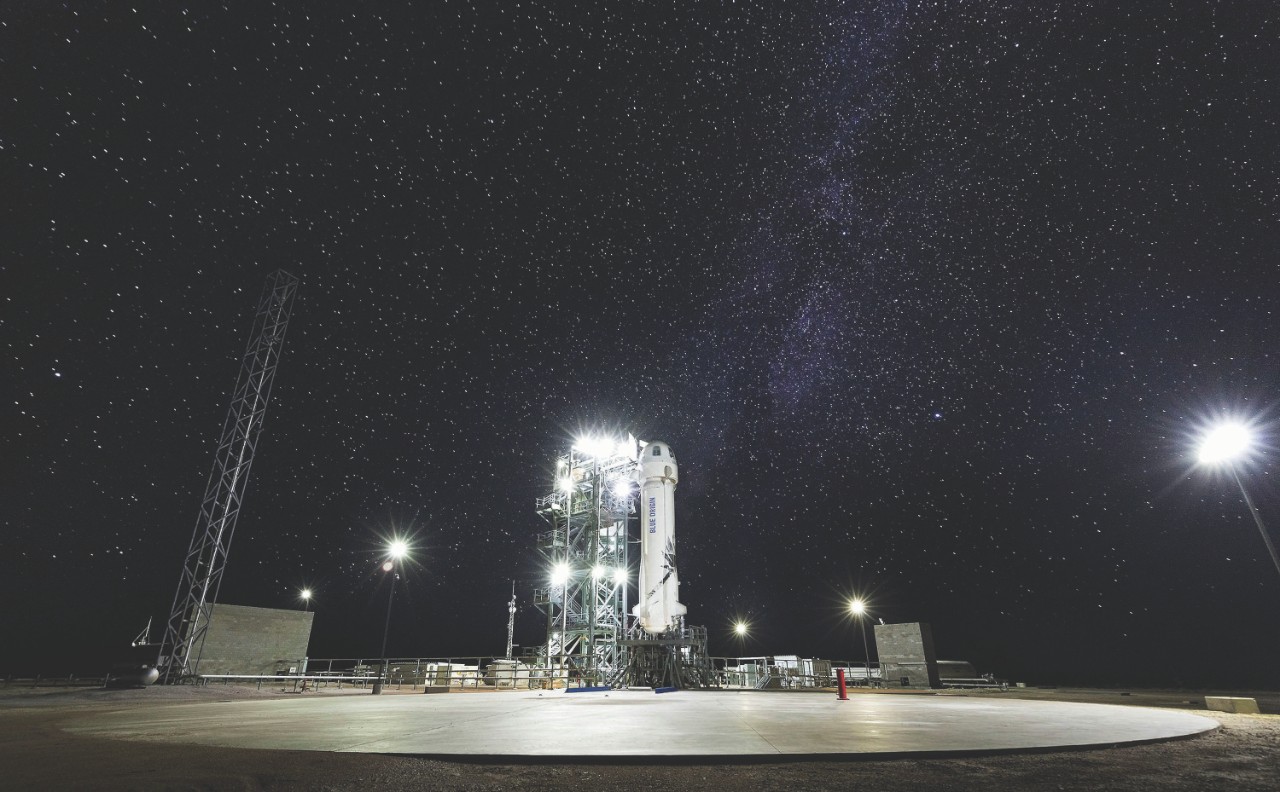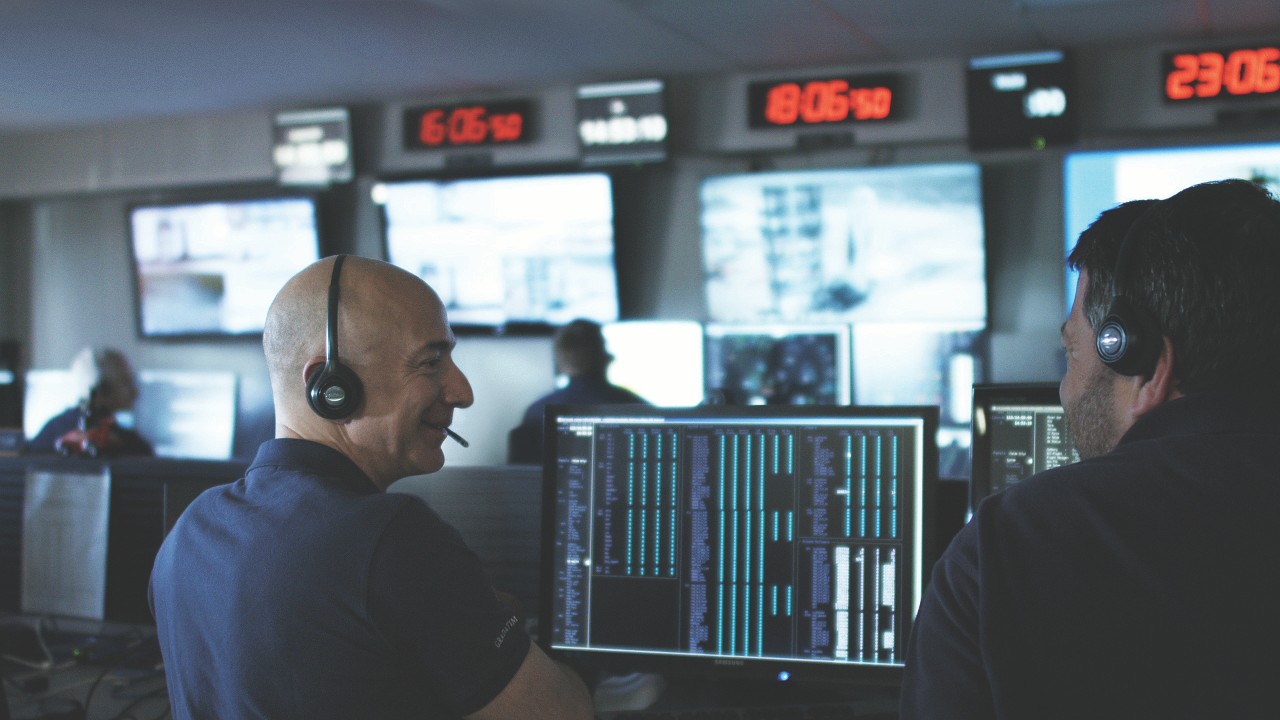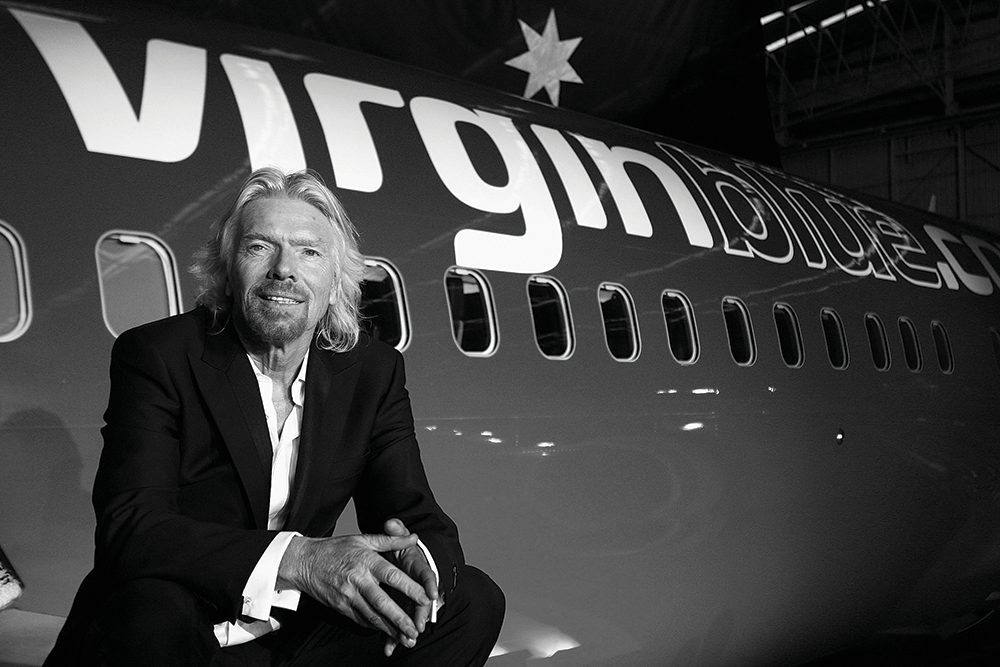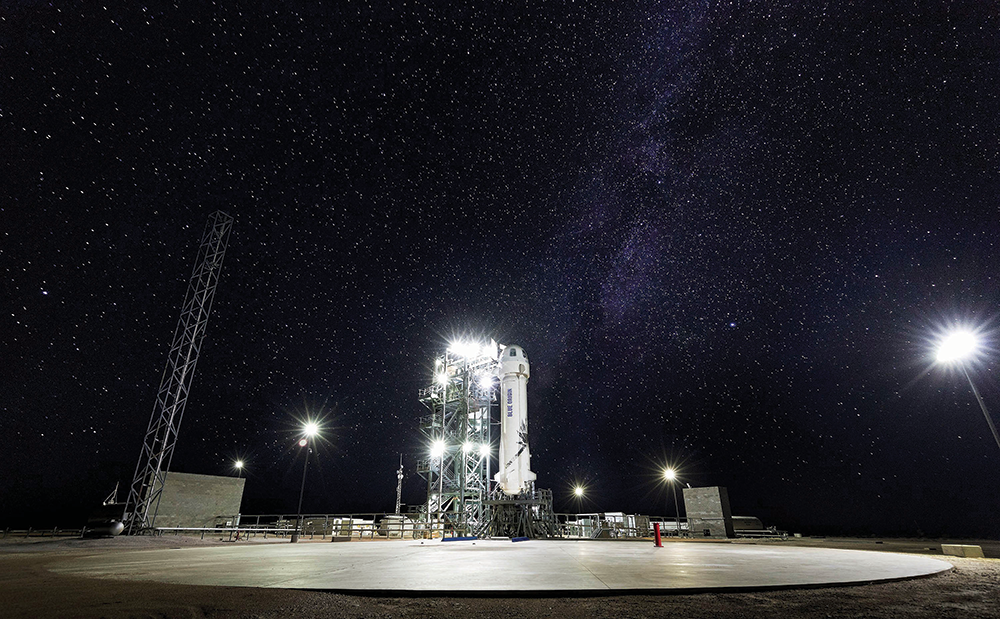In the 21st-century space race, it’s billionaire entrepreneurs rather than superpower governments fuelling rockets to the stars. What’s driving the likes of Elon Musk, Jeff Bezos and Richard Branson? And what do they realistically hope to achieve? Dominic Bliss finds out.
This July 2019, it will be exactly half a century since Neil Armstrong made his “giant leap for mankind”. Not since the end of the Apollo programme in 1972 has a human being travelled beyond low-Earth orbit. But if billionaires such as Elon Musk (he of Tesla and PayPal fame) and Jeff Bezos (founder and CEO of Amazon) have their way, that could all change a lot sooner than we think.
By 2023, perhaps? That’s when Musk’s spaceflight company SpaceX plans to fly paying passengers (Japanese billionaire Yusaku Maezawa plus guests) in a huge loop around the Moon; price to be confirmed. Virgin Galactic, under the chairmanship of British billionaire Richard Branson, has already sold tickets (at US$250,000 per person) for suborbital flights above the Earth’s atmosphere.
The long-term goals of these entrepreneurs are far more ambitious than mere space tourism, however. Both Musk and Bezos have their sights set on Mars and beyond. The former is driven by the fear that Earth might eventually succumb to an extinction event so that a colony on Mars will ensure humanity doesn’t die out. The latter wishes to relocate all heavy industry to the Red Planet, thereby preserving Earth’s own ecosystem. “The people who go into this business do it because they are missionaries,” he says.
Both are noble aims. But are there other factorsat play? Aside from rocket propellant, what else is fuelling this new space race?

Above: Blue Origin's New Shepard rocket is designed to take off and land vertically.
Musk, Bezos and Branson are all striving to reduce the cost of space flight – SpaceX and Blue Origin through reusable rockets, and Virgin Galactic through spacecraft mounted on carrier aeroplanes. As their legacy to humankind, all three have said they wish to play a part in accelerating man’s exploration of space. Bezos explained in a recent interview: “If I’m 80 years old, looking back on my life, and the one thing I have done is make it so that there is this gigantic entrepreneurial explosion in space for the next generation, I will be a happy, happy man.”
Christian Davenport is author of a new book called Space Barons: Elon Musk, Jeff Bezos, And The Quest To Colonize The Cosmos. A journalist at the Washington Post, he has spent much of the last few years studying these three space barons close up. “A common theme driving these billionaires is that they want to recapture some of the glory and triumph and unification of the 1960s-era space age,” he says. “In 1969, we went to the Moon, 250,000 miles away. Today we go to the International Space Station, only 250 miles away. This doesn’t represent the ambition we saw during the Apollo era. [Back then] people thought that by today there would be a base on the Moon. These space barons are disappointed that we haven’t gone further since then.”



